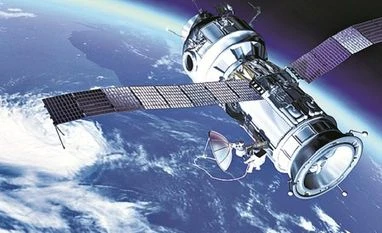When Nasa landed its NEAR Shoemaker spacecraft on Asteroid 433 Eros in 2001, Gregory W Nemitz issued a $20 parking ticket to the American space agency, claiming the space rock was his private property and that he had submitted related documents with the California secretary of state. Nasa refused to pay, citing lack of legal status.
But was Nemitz wrong in his claim? According to Article II of the Outer Space Treaty of 1967, which has 109 parties to it and forms the basis of international space law, “Outer space, including the moon and other celestial bodies, is not subject to national appropriation by claim of sovereignty, by means of use or occupation, or by any other means.” But the treaty is silent on individual ownership.
Recently, Elon Musk unveiled a SpaceX spacecraft — Starship — to transport passengers and cargo to the moon or Mars. Blue Origin of Jeff Bezos revealed its lunar lander plan in May and also tested a rocket for space tourism purposes. Others like them are also looking to invest in similar ideas.
So, if Musk succeeds in his plans to send humans to Mars and builds a station there later, would that patch on the red planet belong to all mankind or his SpaceX company? This query also applies to the moon.
Nothing on earth legally forbids an individual or a company from claiming a spot on the moon or Mars and building infrastructure there, but the Moon Treaty of 1979. This treaty bans ownership of any extraterrestrial property by any organisation or person unless that organisation is international and governmental. India is one of the only 11 signatories to this agreement and by default, an Indian may not be able to exploit the Outer Space Treaty’s loophole. But Americans, Chinese, Japanese, and Russians can — their nations haven’t signed the Moon Treaty.
There is renewed interest among space agencies to explore the far side of the moon after Chandrayaan I discovered water ice there. Earlier this year, China landed its rover on the far side, and India witnessed Vikram's hard-landing somewhere near its southern pole, with contact lost. Such missions were aimed at figuring out how well the moon could serve as settlement for future manned missions.
Asteroid mining is also being discussed; in April, Hayabusa2 from Japan bombed Ryugu asteroid and obtained a sample of its rock dust for return to earth; the robotic probe successfully touched down on its surface in July. In August, American President Donald Trump launched the US Space Command to defend the country’s military satellites and other space assets.
The race for outer space real estate has already intensified. Whether we like it or not, this competition parallels the Colonial race — which was led by enterprising individuals and companies — and the dominant will set the rules of the game. Instead of hiding behind an outdated international treaty having numerous loopholes, we need to be ready for this fight.
Besides, the Outer Space Treaty is based on the Antarctic Treaty, which sets the frozen continent apart as a scientific preserve and forbids military activity. So far, the agreement has worked well to prevent discord, despite countries like New Zealand, Australia, Argentina, and Chile claiming parts of the continent. But without any opportunity to profit, there was hardly any commercial activity there. On the other hand, there is no such treaty for the Arctic Circle and we all know about commercial interests in that region.
“Space is indeed a new frontier calling for individualism rather than collectivism, and its challenges need to be addressed with a legal regime favourable to property rights... Given the abundance of extraterrestrial resources, it would be nonsensical to forbid their (industrialists and investors) private appropriation,” argues Virgiliu Pop in his book Who Owns the Moon?: Extraterrestrial Aspects of Land and Mineral Resources Ownership. He had claimed ownership of the Sun to make a point about extraterrestrial property rights and suggested that the moon’s status as common heritage would not last if lunar exploitations were to become any simpler.
He further says: “... space law demands an Olympian level of wisdom, and that attempts at addressing its challenges are not easier than hacking down a mountain with a blunt knife.”
In a 2018 paper titled Homesteading the Final Frontier: A Practical Proposal for Securing Property Rights in Space by Rand Simberg of the Competitive Enterprise Institute, a think tank, says “the idea is that recognition is not necessarily appropriation”, as it calls for legislation whereby the US would accept claims made by private entities, American and others, based on certain criteria. I want the United Nations to be that adjudicator.
We don’t know how extraterrestrial real estate is going to work, but it’s exciting that our generation could be the first to homestead the space. For that, we need a new, modified outer space law that promotes individualism and government-backed explorations, and avoids the ugliness of the Colonial era.
Unlock 30+ premium stories daily hand-picked by our editors, across devices on browser and app.
Pick your 5 favourite companies, get a daily email with all news updates on them.
Full access to our intuitive epaper - clip, save, share articles from any device; newspaper archives from 2006.
Preferential invites to Business Standard events.
Curated newsletters on markets, personal finance, policy & politics, start-ups, technology, and more.
)